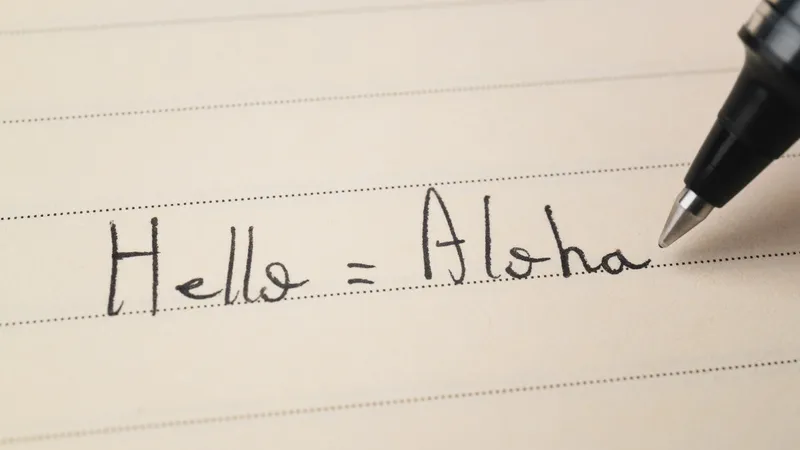
.CWmjSf2-_ZyUa3W.webp)
He Puka I Ka ʻIke
A Foundational Guide to the Hawaiian Language and Its Cultural Heart
Learn ʻōlelo Hawaiʻi with respect, understanding, and proper pronunciation

Written by a Hawaiian Language Expert
Jade KawanuiThe Heartbeat of a Culture
The first time I heard my papa tell the story of how letters came to our islands, I was seven years old, sitting cross-legged under the old coconut palm behind our house in Hanalei. The trade winds carried the scent of salt and plumeria through the ironwood trees as his voice painted pictures of a time when our ancestors carried all their knowledge in their hearts and voices alone.
"Keiki," he said, using the weathered hands that had taught me to cast a throw net, "our language lived only in the breath of our people for more than a thousand years. Then came the day when those sounds found their way onto paper."
That story planted a seed in me that grew into a lifelong passion for ʻōlelo Hawaiʻi. Today, as I watch my own keiki—Keahi, Keola, Kai, and Kiele—discover the beauty of their ancestral language, I understand what papa was really teaching me that afternoon. He was showing me that language is more than words. It's the heartbeat of a culture.
Your Journey Into ʻŌlelo Hawaiʻi

Whether you're visiting our islands, discovering Hawaiian culture from afar, or beginning your journey into the language of your ancestors, this guide will take you step by step through the foundations of ʻōlelo Hawaiʻi. We'll explore not just how to pronounce words correctly, but the cultural heart that gives them meaning.
Each section builds upon the last, from the basic alphabet and sounds to complex grammar and cultural protocols. Most importantly, we'll learn together how to approach this sacred language with the respect and humility it deserves.
🌺 Foundation & Sounds
Master the 13-letter alphabet, pronunciation rules, and the musical rhythm that makes Hawaiian sound like flowing water.
🏝️ Grammar & Structure
Learn how Hawaiian puts action first, creating a different way of seeing and expressing the world around us.
🤝 Relationships & Possession
Discover the wisdom in Hawaiian's possession system that reveals your relationship with everything you "own."
📚 History & Revival
Understand the heartbreaking suppression and inspiring revival of Hawaiian language through community courage.
E Hoʻomau - Continue Forward
Begin your journey into the heart of Hawaiian culture through its ancestral language
ℹ️ Quick Info
- Letters: 13 total
- Vowels: 5 (a, e, i, o, u)
- Consonants: 8 (h, k, l, m, n, p, w, ʻ)
- Speakers: ~24,000+
- Official Status: Since 1978
🌺 Essential Phrases
- Aloha kākou Aloha to all of us together
- Mahalo nui loa Thank you very much
- E komo mai Welcome, come in
- Aloha ʻāina Love of land
- Mālama pono Take care, be righteous
🤲 Core Values
Humility in learning
Righteousness, balance
Responsibility, privilege
To care for, preserve
Learning with Respect and Understanding
Before we begin our journey into the sounds and structure of Hawaiian, it's important to understand what we're really doing here. This isn't just about learning vocabulary or mastering pronunciation—though we'll do both. This is about entering into relationship with the language that carries the soul of Polynesian culture in Hawaiʻi.
Listen First
Before speaking, listen to how Native speakers use the language. Pay attention to context, tone, and cultural protocols.
Learn the History
Understand the suppression and revival of Hawaiian. Your learning supports ongoing revitalization efforts.
Give Back
Support Hawaiian-led language programs, use diacritical marks correctly, and advocate for proper representation.
"Ma ka hana ka ʻike"
In the working is the knowledge.
This captures our philosophy of learning through doing. You don't master a language by reading about it. True knowledge comes through practice, through putting your voice to the work of speaking with understanding and respect.

